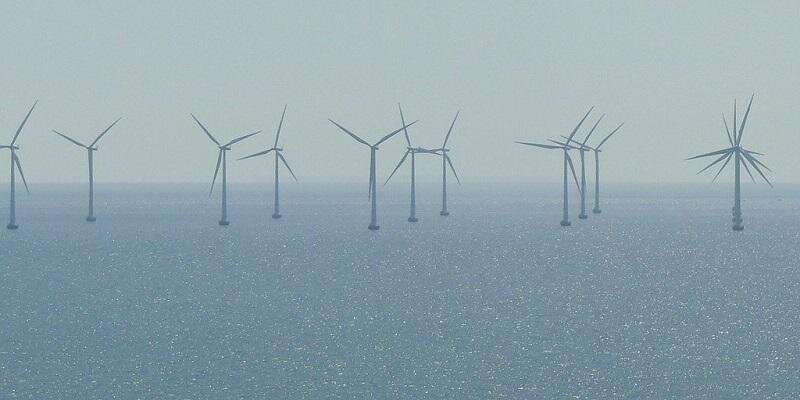'Our low-carbon future needs to be circular'

The renewable energy industry needs to adopt the ideas of a circular economy, where equipment is designed to be reused or remanufactured when it reaches the end of its operational life.
Researchers say it would reduce the environmental cost of low-carbon infrastructure—such as offshore wind turbines, solar panels and batteries—which are required if the UK is to achieve its net-zero carbon targets.
The technologies often use copper, rare earth metals and novel composites which are damaging because of the way they are extracted and processed.
A new study, published in the journal Sustainable Production and Consumption, has found that industry is giving little consideration to what will happen to this infrastructure at the end of its service life—which for some technologies will be within the next decade.
An in-depth review of plans and practices of the offshore wind industry showed that current practices rely on recycling, "sustainable incineration" or—in some countries—material going into landfill sites. Such solutions hold limited sustainability benefits.
Dr. Paul Jensen, an expert in low carbon development in the Faculty of the Environment at Leeds, led the study. He said: "It is increasingly crucial for decommissioning to be seen as a point of system regeneration, not an end point.
"In a perfect world we would have in the region of ten years to innovate and scale up industrial solutions that can ensure sustainable and resource conserving solutions for offshore wind farms and many other low carbon technologies.
"Given the early stage in which many of the end-of-use solutions still are, that is not a lot of time."
In the paper, the researchers argued that renewable technologies must be "designed for durability, reuse and remanufacturing". Their analysis found that industry "decommissioning plans for offshore wind are at best formulaic and at worst perfunctory and provide no value to the growing movement toward a circular economy".
They added: "At this time, millions of tons of composites, precious and rare earth materials are being extracted, processed and deployed in infrastructure with nothing in place that suggests that these materials can be sustainably recovered, managed and returned to productive use at the potential scales required to meet accelerating low carbon infrastructure deployment..."
Because of the continuing need for low-carbon infrastructure, there is an added urgency for industry to develop sustainable approaches to resource management.
The researchers said the renewables industry should embrace the idea of a circular economy. It is an approach that lies at the heart of sustainability, where technology design involves considering how equipment can be repaired and maintained to extend its operational life—and once it reaches the end of its service life, can be disassembled, reused, remanufactured and recycled.
The licensing of wind farms should include requirements for sustainable decommissioning.
Dr. Anne Velenturf, Research Impact Fellow in Circular Economy and Sustainable Offshore Wind Development in the School of Civil Engineering at the University of Leeds, said: "Low carbon infrastructure risks falling into the same mistakes as oil and gas and nuclear infrastructure decommissioning, resulting in significant losses of carbon savings and a clean-up bill that could be four to ten times higher than anticipated by industry.
"It is important to learn from previous decommissioning experiences and enable the integration of circular economy approaches into the design, operation and end-of-use management of low carbon infrastructure sectors."
Developing sustainable end-of-use solutions will depend on collaboration between stakeholders in industry, government, civic sector, and research and innovation. The Resource Recovery from Waste program has been building momentum for research on the interface of circular economy and low carbon infrastructure.
More information: Paul D. Jensen et al. Highlighting the need to embed circular economy in low carbon infrastructure decommissioning: The case of offshore wind, Sustainable Production and Consumption (2020). DOI: 10.1016/j.spc.2020.07.012


















